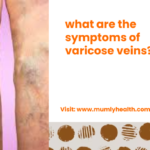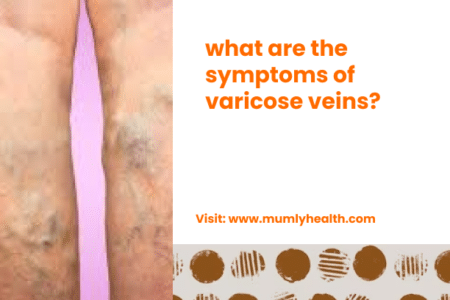Welcoming the miracle of life comes with its share of changes. However, for many expectant mothers, varicose veins become an unexpected companion during pregnancy. Understanding how to cope with these venous twists and turns is crucial for a smooth journey to motherhood. Let’s delve into the intricacies of varicose veins. In this article, you will discover strategies to navigate this leggy challenge during pregnancy.
- Varicose Veins: Definition and Causes
- Factors Aggravating Varicose Veins in Pregnancy
- Preventive Measures
- Regular Exercise and Physical Activity
- Maintaining a Healthy Weight
- Avoiding Prolonged Sitting and Standing Elevating Legs
- Compression Stockings: A Supportive Aid
- Dietary Considerations
- Postpartum Considerations
- Conclusion
Varicose Veins: Definition and Causes
Varicose veins form when the valves inside the veins suffer damage or weakening. These valves are responsible for regulating blood flow and preventing backward circulation. Malfunction valves lead to blood pooling and increased blood pressure within the veins. Gradually, veins enlarge and become visible beneath the skin.
Varicose veins can affect anyone. However, they are particularly prevalent during pregnancy. The primary causes include:
– Hormonal changes
– Increased blood volume
– The pressure exerted by the expanding uterus on the pelvic veins
If you’re concerned about varicose veins, consult with a vein doctor. This specialist can provide personalized guidance on managing this aspect of your health.
Symptoms and Signs
Varicose veins, while often harmless, can manifest with a variety of symptoms and signs. Being attentive to these indicators can aid in early recognition and prompt intervention. Some common indicators of varicose veins are the following:
– Visible veins
– Aching and heaviness
– Swelling and discomfort
– Itching or burning
Recognizing Early Signs During Pregnancy
Paying attention to subtle changes is essential. During pregnancy, early detection becomes even more crucial. Keep an eye out for the following:
- Unexplained Leg Pain. Persistent, unexplained pain in the legs should not be ignored, especially if accompanied by visible veins.
- Skin Changes. Discoloration or darkening of the skin around veins could be an early sign. Also, the skin may feel warm to the touch.
- Restlessness in Legs. An unexplained leg discomfort, particularly in the evening, may indicate venous issues.
Factors Aggravating Varicose Veins in Pregnancy
Understanding the factors worsening varicose veins during pregnancy is crucial for effective management strategies.
Hormonal Changes
The hormonal surge during pregnancy plays a significant role in developing varicose veins. Progesterone contributes to the relaxation of blood vessel walls. This makes the veins more susceptible to dilation and incompetence. As a result, the valves within the veins may struggle to function optimally. This causes the backward flow of blood and the eventual formation of varicose veins.
Increased Blood Volume
Pregnancy demands a remarkable increase in blood volume to support the developing fetus. This physiological adaptation is essential for fetal nourishment. However, it also puts additional stress on the circulatory system. The elevated blood volume can overwhelm the venous valves, causing them to weaken and allowing blood to pool in the veins. This pooling contributes to the visible swelling and distortion characteristic of varicose veins.
Uterine Pressure on Pelvic Veins
As the uterus grows, it exerts pressure on the veins. This pressure impedes the normal flow of blood from the lower extremities back to the heart, leading to a backlog in the veins. The veins become engorged and may lose their usual elasticity. This further contributes to the development of varicose veins, particularly in the legs.
Preventive Measures
Navigating the course of pregnancy with varicose veins can be challenging. However, adopting preventive measures can ease discomfort and reduce the severity of symptoms.
Regular Exercise and Physical Activity
Regular, moderate-intensity exercise is a cornerstone of varicose vein prevention during pregnancy. Physical activity promotes healthy blood circulation, helping to counteract the effects of increased blood volume and hormonal changes. Incorporating the following activities into your routine can enhance overall vascular health:
– Walking
– Swimming
– Prenatal yoga
Maintaining a Healthy Weight
A healthy weight is key to minimizing the strain on your circulatory system. Excess body weight can exacerbate the development of varicose veins, especially during pregnancy. Adopting a balanced and nutritious diet contributes to weight management and vascular well-being.
Avoiding Prolonged Sitting and Standing Elevating Legs
Simple lifestyle adjustments can make the difference:
– Avoiding prolonged periods of immobility. Take breaks to move and stretch to encourage healthy blood circulation, whether at work or home.
– Elevating your legs when possible. Try this, particularly after long periods of sitting or standing. This activity helps counteract gravitational forces that contribute to blood pooling.
Compression Stockings: A Supportive Aid
Compression stockings are a valuable ally in the fight against varicose veins. These garments apply controlled pressure to the legs, improving blood flow and reducing swelling. They provide additional support to the veins, particularly when you are more sedentary. Consult a specialist to determine the suitable compression level for your needs.
Dietary Considerations
Your diet plays a pivotal role in vascular health. Include foods rich in antioxidants to support the strength and elasticity of blood vessels. Also, foods containing flavonoids, like berries and citrus fruits, contribute to vascular well-being.
Postpartum Considerations
The journey with varicose veins doesn’t conclude with the delivery of your bundle of joy. Postpartum, new aspects come into play. Understanding how varicose veins may evolve is crucial for long-term vascular health.
Changes in Varicose Veins Post-Delivery
Postpartum, many women notice changes in the appearance and symptoms of varicose veins. Some may experience a reduction in swelling and discomfort. However, others may find that the veins persist or even worsen. The hormonal fluctuations continue post-delivery, and the physical stress of childbirth can influence the condition of the veins.
Continued Care for Long-Term Vascular Health
- Postpartum Exercise. Gradual reintegration of exercise into your routine can aid in promoting blood circulation and supporting vascular health.
- Compression Stockings as Needed. If varicose veins persist postpartum, compression stockings can continue to be a valuable tool.
- Hydration and Nutrition. Sustaining a healthy lifestyle remains essential. Maintain adequate hydration and a balanced diet rich in nutrients.
- Medical Consultation for Persistent Symptoms. Consult a vein doctor if varicose veins persist or cause significant postpartum discomfort.
Conclusion
As you navigate the legs of expectancy, remember that coping with varicose veins during pregnancy is not a solo journey. Arm yourself with knowledge, embrace support, and prioritize your well-being. These are the stepping stones to ensuring a smoother ride on the beautiful path to motherhood.









